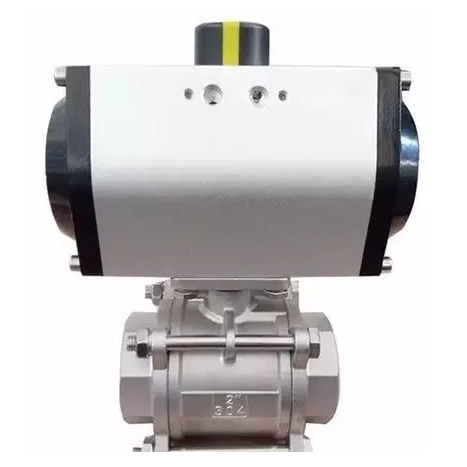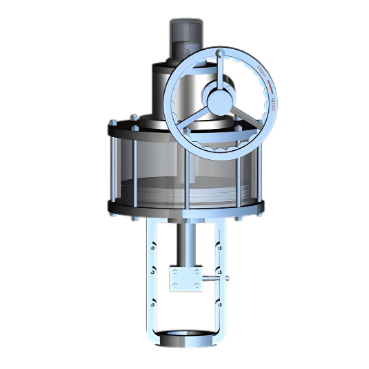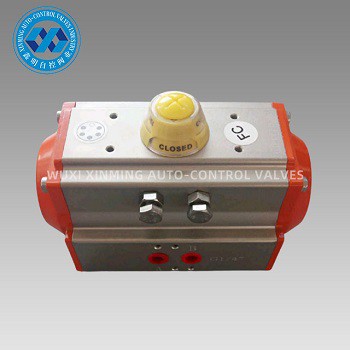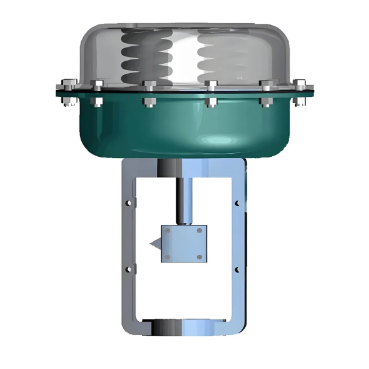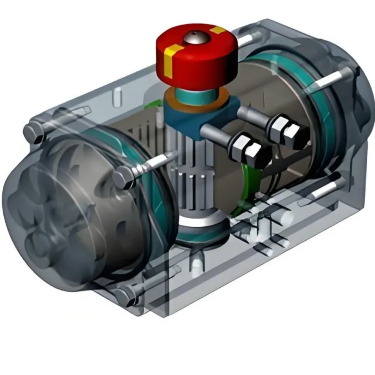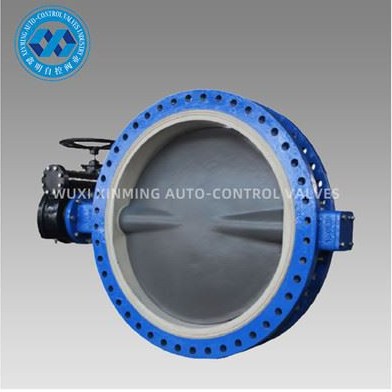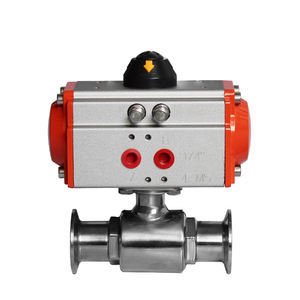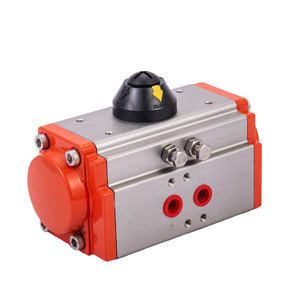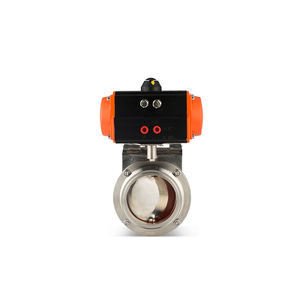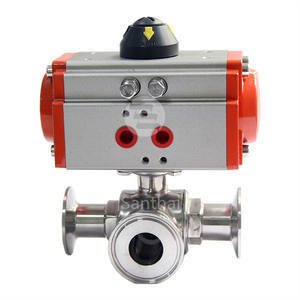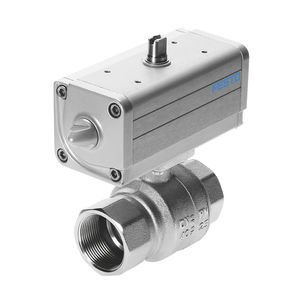Stainless steel pneumatic actuators offer
several distinct advantages over their aluminum counterparts.
First and foremost, stainless steel excels
in corrosion resistance. Unlike aluminum, which can corrode when exposed to
moisture, chemicals, or salt - laden air, stainless steel forms a passive oxide
layer that protects against rust and degradation. This makes stainless steel
actuators ideal for harsh environments, such as coastal facilities or chemical
plants, where aluminum actuators may fail prematurely due to corrosion.
In terms of strength and durability,
stainless steel is significantly stronger. It can withstand higher pressures
and mechanical stresses without deforming, ensuring reliable operation in heavy
- duty applications. Aluminum, while lightweight, may lack the necessary
strength for high - pressure or high - load scenarios, limiting its use in
certain industrial settings.
Stainless steel also has better heat
resistance. It can maintain its structural integrity and mechanical properties
at higher temperatures, making it suitable for applications involving heat,
such as industrial furnaces or exhaust systems. Aluminum, on the other hand,
may soften or lose strength when exposed to elevated temperatures. Overall, for
applications demanding high durability, corrosion resistance, and strength,
stainless steel pneumatic actuators are the superior choice.
If you want to learn more about low-priced products, please visit the following website: www.xm-valveactuator.com


